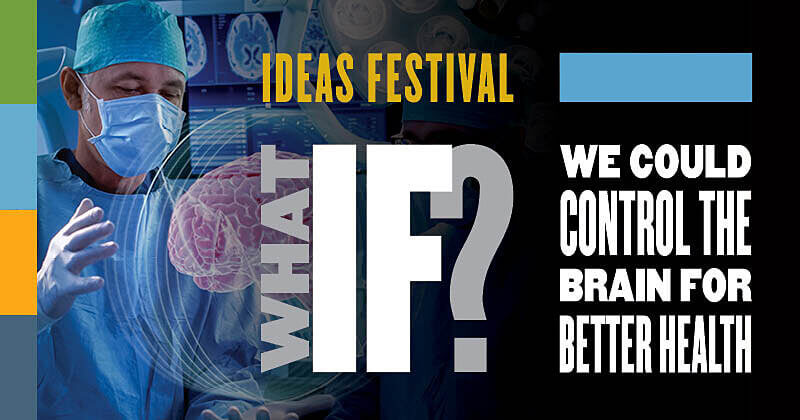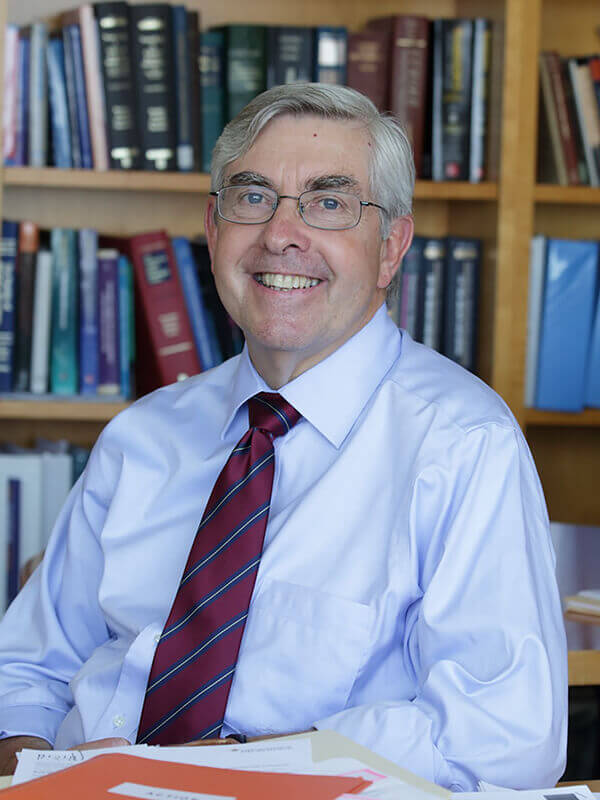September 19, 2019
NIH leader will talk about ‘What IF We Could Control the Brain for Better Health?’

WEST LAFAYETTE, Ind. — The head of one of the institutes within the National Institutes of Health will share experiences and insights in an Oct. 2 presentation at Purdue University.
Dr. Walter J. Koroshetz, the director of the National Institute of Neurological Disorders and Stroke (NINDS) and co-director of the NIH Brain Research through Advancing Innovative Neurotechnologies (BRAIN) Initiative will speak at 7 p.m. in Stewart Center’s Fowler Hall. “What IF We Could Control the Brain for Better Health?” is part of Purdue’s Ideas Festival, the centerpiece of the Giant Leaps Sesquicentennial Campaign, which is a series of events that connect world-renowned speakers and Purdue expertise in a conversation on the most critical problems facing the world. One of the Ideas Festival’s themes is health, longevity and quality of life. This event is co-sponsored by the College of Pharmacy and the Purdue Institute for Integrative Neuroscience.
Koroshetz joined NINDS in 2007 as deputy director and was named director in 2015. He oversees an annual budget of $2.27 billion and 1,141 scientists, physician-scientists and research administrators in Bethesda, Maryland. The institute is the leading funder of research to U.S. universities studying the brain and nervous system, ranging from the structure and function of single brain cells to the causes, prevention, diagnosis and treatment of neurological disorders.
 Walter J. Koroshetz
Walter J. Koroshetz
Download image
He has held leadership roles in a number of National Institutes of Health and NINDS programs including the NIH’s BRAIN Initiative, NIH Blueprint for Neuroscience, the Traumatic Brain Injury Center collaboration with the NIH intramural program and the Uniformed Health Services University, the Helping to End Addiction Long-Term initiative and the NIH Office of Emergency Care Research.
Before coming to NINDS, Koroshetz served as a vice chair of neurology service and director of stroke and neurointensive care services at Massachusetts General Hospital, where he also led neurology resident training. He was a professor of neurology at Harvard Medical School, where he co-directed the neurobiology of disease course
His clinical research career involved the implementation of innovative brain imaging techniques including magnetic resonance (MR) spectroscopy in Huntington’s disease, as well as diffusion/perfusion MR and computerized tomography (CT) imaging and CT angiography in stroke. These stroke imaging tools are now commonplace in stroke care. Guided by these tools, he pioneered acute clot removal for acute stroke patients with large artery occlusion, which is now practiced at comprehensive stroke centers around the country.
Writer: Jeanne Norberg
Media contact: Amy Patterson Neubert, 765-494-9723, apatterson@purdue.edu
Source: Dana Neary, manager of alumni relations and special events, College of Pharmacy, 765-494-2632, nearyd@purdue.edu

